Women are bearing the brunt of the COVID-19 pandemic in a number of ways. Gender-based violence is one of the worst.
Throughout the world, anecdotes and reports of intensifying gender-based violence are emerging – especially violence in the home.
It can be extremely difficult for women to escape violence or get help, particularly during lockdown or restricted mobility conditions when women may be confined in spaces with their abusers – often their spouses or domestic partners.
But thanks to the pandemic’s ‘other frontline workers’ – courageous and dedicated responders supporting survivors of gender-based violence through a range of services – help continues to be prioritised and available in many places.
Gender-based violence prevention and response programmes and services are always essential. And now during the COVID-19 pandemic and in its aftermath, they are more important than ever.
No one can explain this better than the frontline responders themselves. The following stories from across Asia and the Pacific show the commitment of service providers who are getting creative, adapting and overcoming obstacles in innovative ways so women experiencing violence can continue accessing support services amid the pandemic.
UNFPA thanks the service providers featured here for generously sharing their stories and images, which were collected with informed consent, to convey the importance of gender-based violence programmes despite, and in light of, the challenges presented by COVID-19.
Thiviya Gunasekaram, Counsellor at the Jaffna Social Action Centre, Sri Lanka
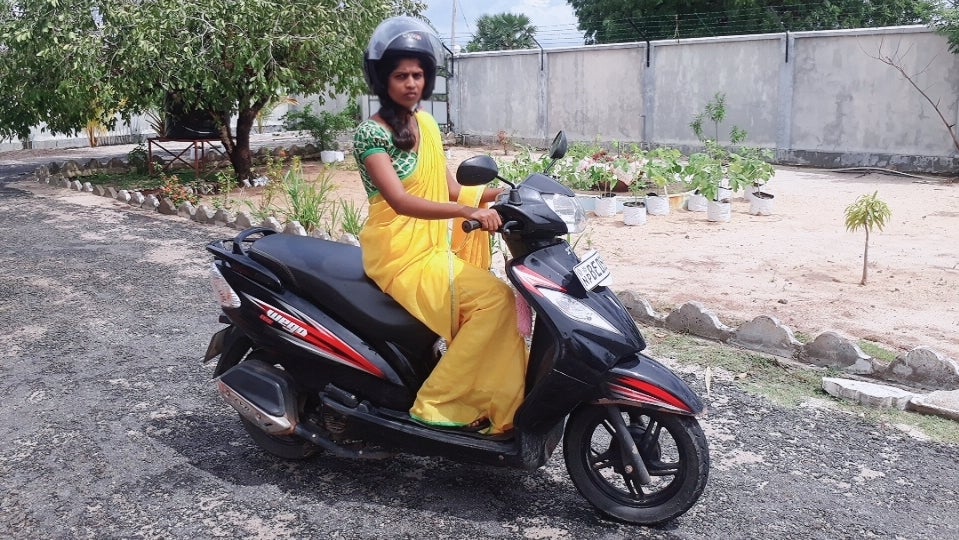
“Every day, I travel close to 28 kilometres one way just to reach the shelter I am working in. Now, due to COVID-19 travel restrictions, I stay at the shelter along with the other women, just so I can help them. Although I dearly miss waking up to my mother’s cooking and ending the day by helping my father to bring the cows back into the shed, I realise that I have a responsibility in being a counsellor. I am proud to be a source of light, solace and happiness to many. I believe I have a God-given gift to help those who need my support, and I want to urge other frontline workers and service providers to use their talents and skills to be there for one another, now more than ever as domestic violence intensifies amid lockdown measures.” – Thiviya Gunasekaram, counsellor at the Jaffna Social Action Centre in Sri Lanka
Counsellors like Thiviya continue to work tirelessly despite the COVID-19 pandemic to ensure that survivors of gender-based violence receive the care and support they need. UNFPA supports the Government of Sri Lanka, via shelters and counselling services to create safe spaces that will continue serving vulnerable women and girls all over the country.
Manju Basnet, Community Psychosocial Worker, Nepal
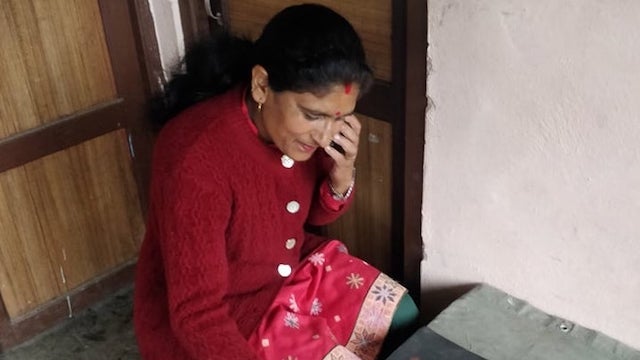
“Namaste, my name is Manju Basnet. I am a community psychosocial worker supporting women who experience gender-based violence. I am supporting several daughters-in-law who are experiencing domestic violence during COVID-19. I get a lot of calls from them sharing their horrific experiences. Sometimes I refer them to One-stop Crisis Management Centres nearby for further help. Other times, I visit their families to provide psychosocial support.” - Manju Basnet, volunteer community psychosocial worker, Okhaldhunga, eastern Nepal
Pema, Counsellor, Bhutan
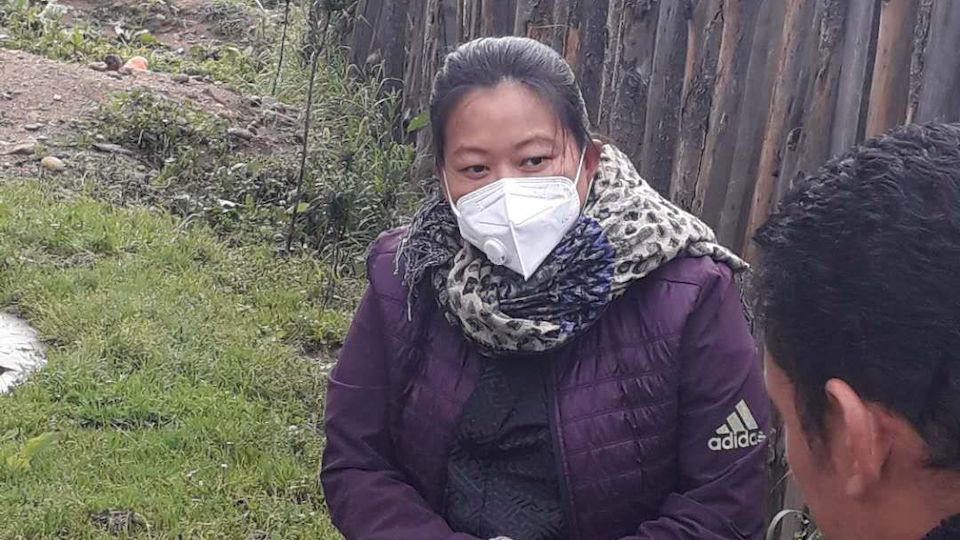
“For the last five days, I have been attending to a severe marital rape case through the telephone. The perpetrator has already been reported and is under police custody. Today, my client has called me over seven times, and I am a bit worried. I want to visit her so I am applying for a movement order from the COVID-19 taskforce. This is a time when nothing moves without proper coordination. The multisectoral taskforce and community-based service system working together has really helped me to reach out to my clients, even during this lockdown. This lockdown has brought the whole country to a standstill, but domestic violence and violence against women and girls have proliferated.” - Pema, a counsellor who volunteers with UNFPA in central Bhutan
Dr Titilola Duro-Aina, UNFPA Papua New Guinea

UNFPA and partners have provided PPE and dignity kit supplies to health care workers in Papua New Guinea throughout the COVID-19 pandemic, including gender-based violence frontline responders. The dignity kits are given to particularly vulnerable women in need at a time when supplies may be increasingly difficult to access. They include essential menstrual hygiene and sanitation supplies and information about locally available support survivors for women experiencing gender-based violence.
Soumya Sahu, Administrator of a One-stop Centre for survivors of violence, India
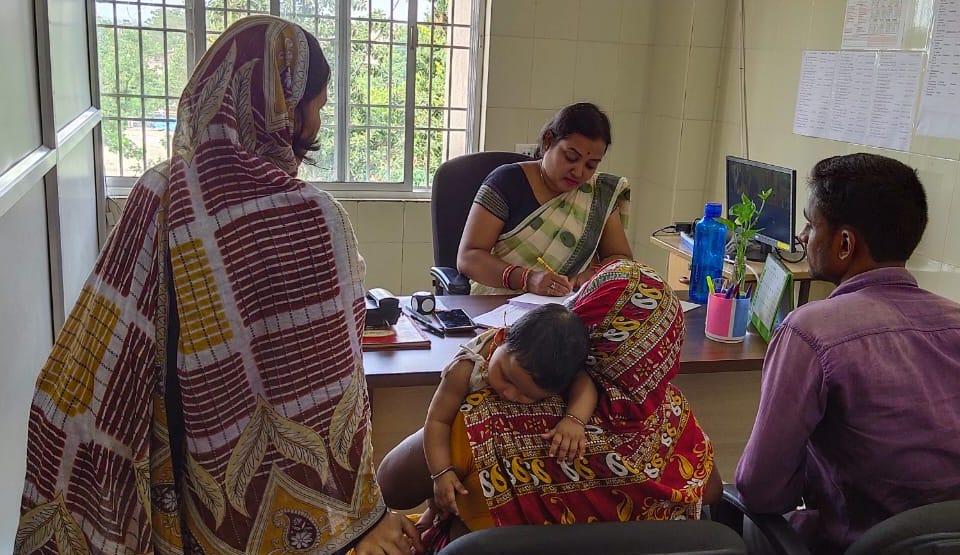
“One morning in early June during the COVID-19 lockdown, we received a call from a woman. Her daughter was experiencing escalating domestic violence by her in-laws, who demanded a dowry. That morning, she had sustained severe head injuries and fractures to her hand. We ensured that she was admitted to the hospital, we helped file a case against her in-laws, and we continuously followed up to confirm her safety. Unfortunately, violence against women has not ceased during the COVID-19 crisis. But we kept our centre open and continued making our best effort to immediately attend to every call from survivors or their family members even during the lockdown, when transportation was severely curtailed.” - Soumya Sahu, Administrator of the One-stop Centre in Cuttack, Odisha, a place where women come for help when they experience violence
Norkisa Mangaho, Women-Friendly Space Facilitator, Philippines
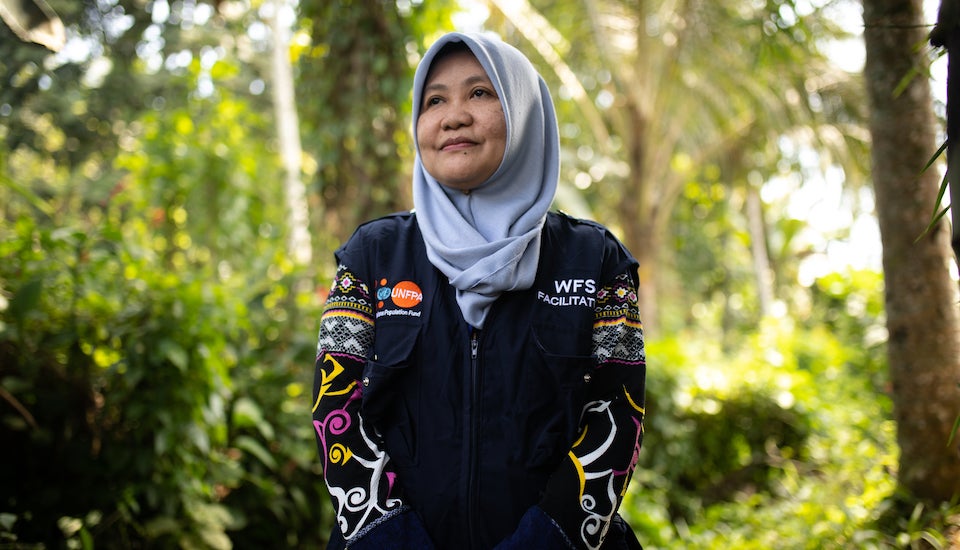
“I never imagined that there would be work like this for me. We may not exactly be the frontliners who are combatting the coronavirus, but we are also at the frontline of building our community back better, by protecting and healing the most vulnerable women and girls. Previously I wouldn’t intervene even when I saw someone harassing another person unless she or he is my family member, because in our community many have been taught not to meddle in other people’s business. Now, when I see a woman or a girl being harassed, I intervene and try to solve the problem, by using the knowledge and skills that I gained from the Women-Friendly Space Facilitator training.” - Norkisa Mangaho, Women-Friendly Space Facilitator in Marawi, Philippines
Women-Friendly Spaces are platforms for protection and empowerment for women, by women. They also provide survivors of gender-based violence with referrals to necessary clinical, police and legal services, and linkages with programmes to support their livelihoods. Facilitators like Norkisa teach their community members about gender-based violence and women’s rights.
Mowsume Aktar, Midwife at Women-Friendly Spaces in Cox’s Bazar, Bangladesh
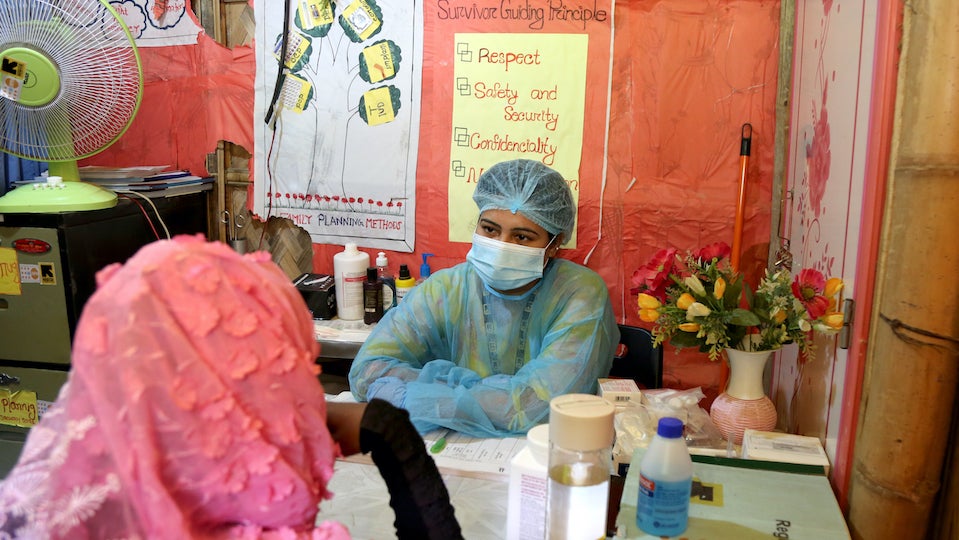
Though appearing light-hearted and smiling, Mowsume is conscious of the serious issues women face in the Rohingya refugee camps of Cox's Bazar, including gender-based violence. These challenges are only compounded by COVID-19-imposed stresses and movement restrictions.
“It is not easy. Lack of knowledge makes it hard for communities to get to know the services available for sexual and reproductive health and rights, and gender-based violence response. But I do not give up. I have hope that information sharing and the power of our voices will provide reliable knowledge about this safe place for the most vulnerable women in our community. My biggest dream is to see women empowered; more self-confident; and able to make choices and decisions about their own sexual and reproductive lives, about the number of children they want, about their mind and body health, and, mostly, about their freedom of choice and movement in the camps. When necessary, I make reference to religious scriptures to help convey these messages.” - Mowsume Aktar, 25, certified midwife at a Bangladeshi Women-Friendly Space in Ukhiya, Camp 11, on behalf of the International Rescue Committee
Especially during the COVID-19 pandemic, midwives continue to be the frontline workers for women of reproductive age in 23 UNFPA-established Bangladeshi Women-Friendly Spaces. These have remained operational due to their essential services, including midwifery. Women-Friendly Spaces support the refugee camps of Cox’s Bazar, which over the past three years have had the largest influx of Muslim minority Rohingya people fleeing atrocities and persecution in Myanmar.
Daw Ngwe Zin Thant, Staff Officer & Gender-based Violence Helpline Staff, Department of Social Welfare, Myanmar
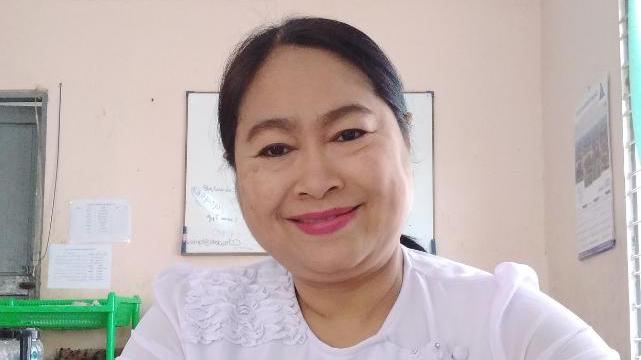
“The gender-based violence online training changes our regular way of work. As a helpline staff, it helps me understand what assistance the survivor needs most in this COVID-19 situation, how she might feel as a survivor, and how I can provide services remotely. Regardless of movement restrictions and challenges during the pandemic, the knowledge and techniques help me feel much more confident to respond to reports of gender-based violence and help the survivors to ensure they receive our services effectively.” - Daw Ngwe Zin Thant, Staff Officer & Gender-based Violence Helpline Staff, Myanmar Department of Social Welfare
In Myanmar, realising there is a crucial need to scale up services during the COVID-19 pandemic, government, civil society and UN partners came together to boost helplines by training responders to provide immediate, remote psychological first aid. Callers can also be directed to women support centres, safe spaces that link women to various types of assistance. And, many health care providers across Myanmar have been trained and mobilised to support survivors of gender-based violence.
J. Tsetsegmaa, Chief Social Worker and Administrator of a One-stop Service Center, Mongolia
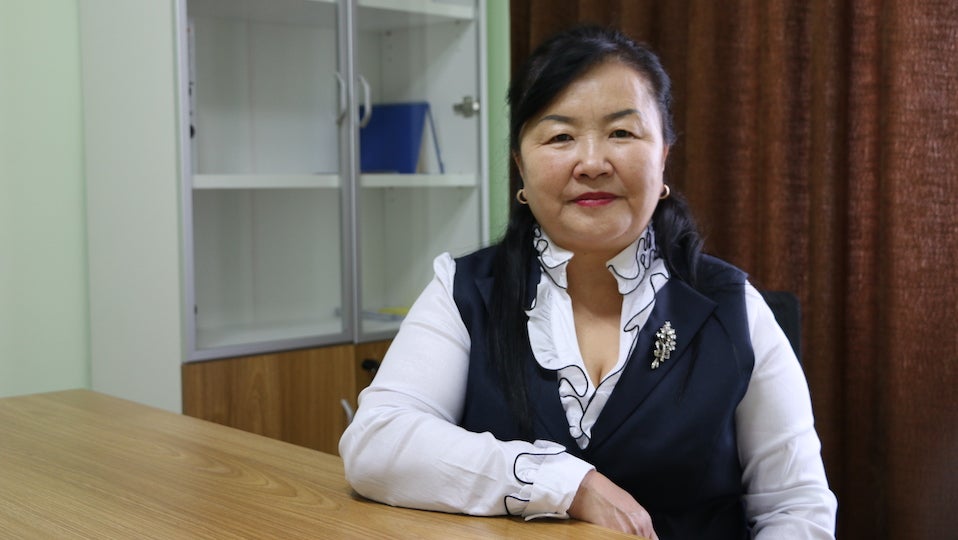
“Gender-based violence awareness and mitigation is my number one priority now, while also protecting our staff and clients from COVID-19. We need to keep providing essential services to survivors of violence, especially during this period of restrictions. Services for gender-based violence survivors are generally still available, but many consultations and counselling sessions are now done online or over the telephone. Technology like mobile apps, websites and TV programmes also help us continue reaching people in need through remote support.” J. Tsetsegmaa, Chief Social Worker and Administrator of Mongolia’s Darkhan-Uul One-stop Service Center
In Mongolia, One-stop Service Centers offer survivors of gender-based violence and their families a full range of services, including safe accommodations, health care, psychosocial counseling, protection services, and basic legal guidance. In response to the influx of reported incidents of gender-based violence during the COVID-19 pandemic, two new One-stop Service Centers opened in the country’s capital, Ulaanbaatar.
Saloni Rawat, Counsellor at a One-stop Centre for survivors of violence, India
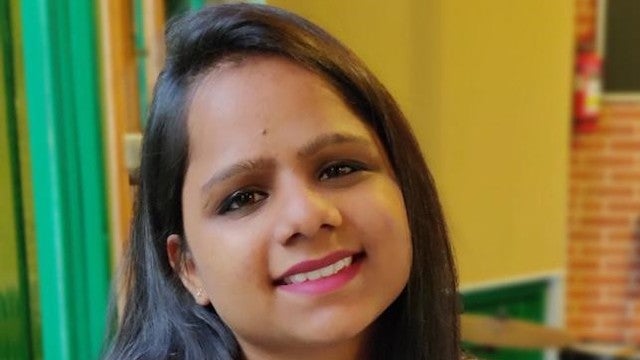
“We receive a high caseload of about 50 to 60 clients each month, which has increased somewhat during COVID-19, so we work in shifts to keep the centre open 24/7. We link women with several services they might need, whether it’s police assistance, a place to sleep or health care from the local government hospital. The fact that I am able to help survivors inspires me a great deal. Providing services during the COVID-19 lockdown was challenging. But despite that, in my view, the most important part of counselling survivors of gender-based violence is the follow-up. As part of our centre’s policy, I continue following up with each survivor until I am assured of her safety. I try to understand the survivor’s needs and base counselling around them.” - Saloni Rawat, counsellor at the One-stop Centre in Jaipur, Rajasthan, India
Hkawng Gan, Women and Girls Centre Manager, Metta Foundation, Myanmar
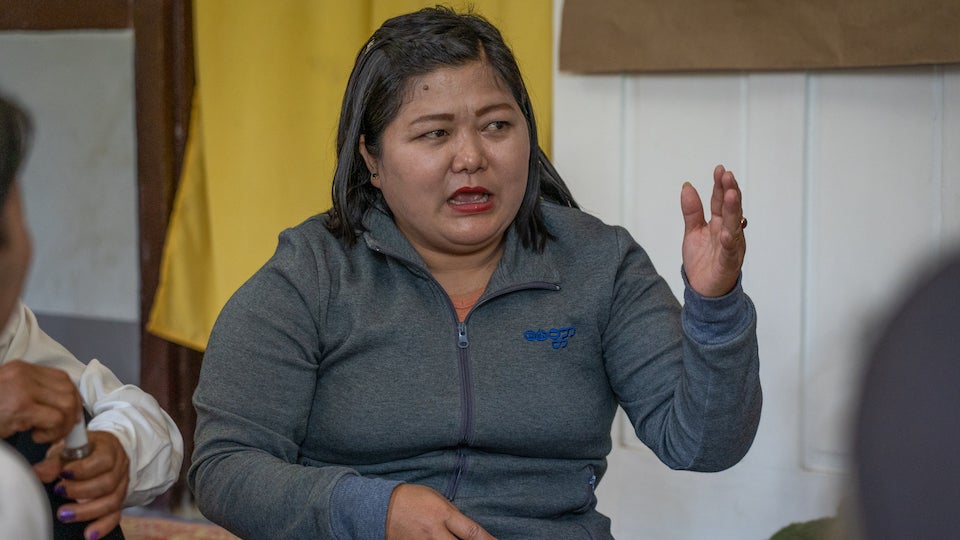
“In the internally displaced people camps in Kachin State, most of the gender-based violence cases reported during the COVID-19 pandemic are related to domestic violence. Movement restrictions and livelihood disruptions mean that people are stuck at home together now, and levels of stress are rising. Consequently, male intimate partners are taking out their frustrations by exerting control over women through use of violence, including sexual violence. We cannot afford to slow down our life-saving services for those women and girls amid the COVID-19 pandemic. Our services, which survivors connect to through the national gender-based violence helpline, are essential to mitigate and respond to the increasing instances of gender-based violence.” - Hkawng Gan, Women and Girls Centre Manager, Metta Foundation, Kachin State, Myanmar
With UNFPA’s support, 33 Women and Girls Centers throughout Myanmar provide counselling, legal assistance, transport to hospitals and other care for survivors of gender-based violence. Internally displaced people are more vulnerable and have less access to services, especially during COVID-19 when mobility restrictions prevent them from visiting Women and Girls Centres. The gender-based violence helpline was therefore put in place to help mitigate pandemic-related obstacles so survivors have continued access to support.
Julekha Akther, Caseworker, Bangladesh
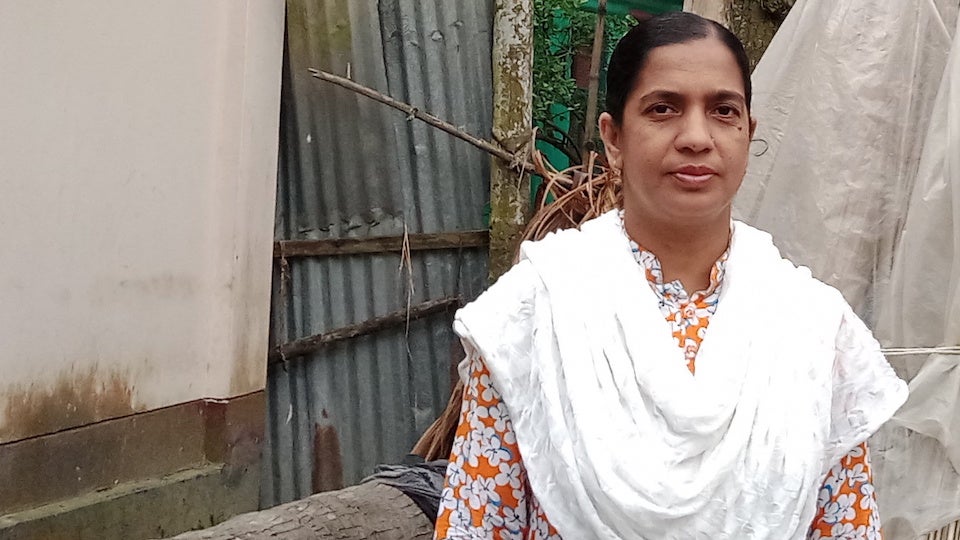
"Ever since COVID-19 began, domestic violence has increased. I was afraid to go out, but I would have felt guilty to stay home. Now I risk my life to defend survivors of gender-based violence." - Julekha Akther, caseworker, Bangladesh Association for Community Education
UNFPA, the UN’s sexual and reproductive health agency, works in over 150 countries, seeking to achieve zero maternal deaths, zero unmet need for family planning and zero gender-based violence and harmful practices against women and girls.
Amid the COVID-19 pandemic, UNFPA provides technical support to governments, civil society and others to adapt gender-based violence prevention and response programmes and services so women can continue to access support when they want it.
For more on our response to the COVID-19 pandemic, visit unfpa.org/COVID19.
To support our lifesaving work amid the pandemic, visit donate.unfpa.org/th-en/covid-19.


